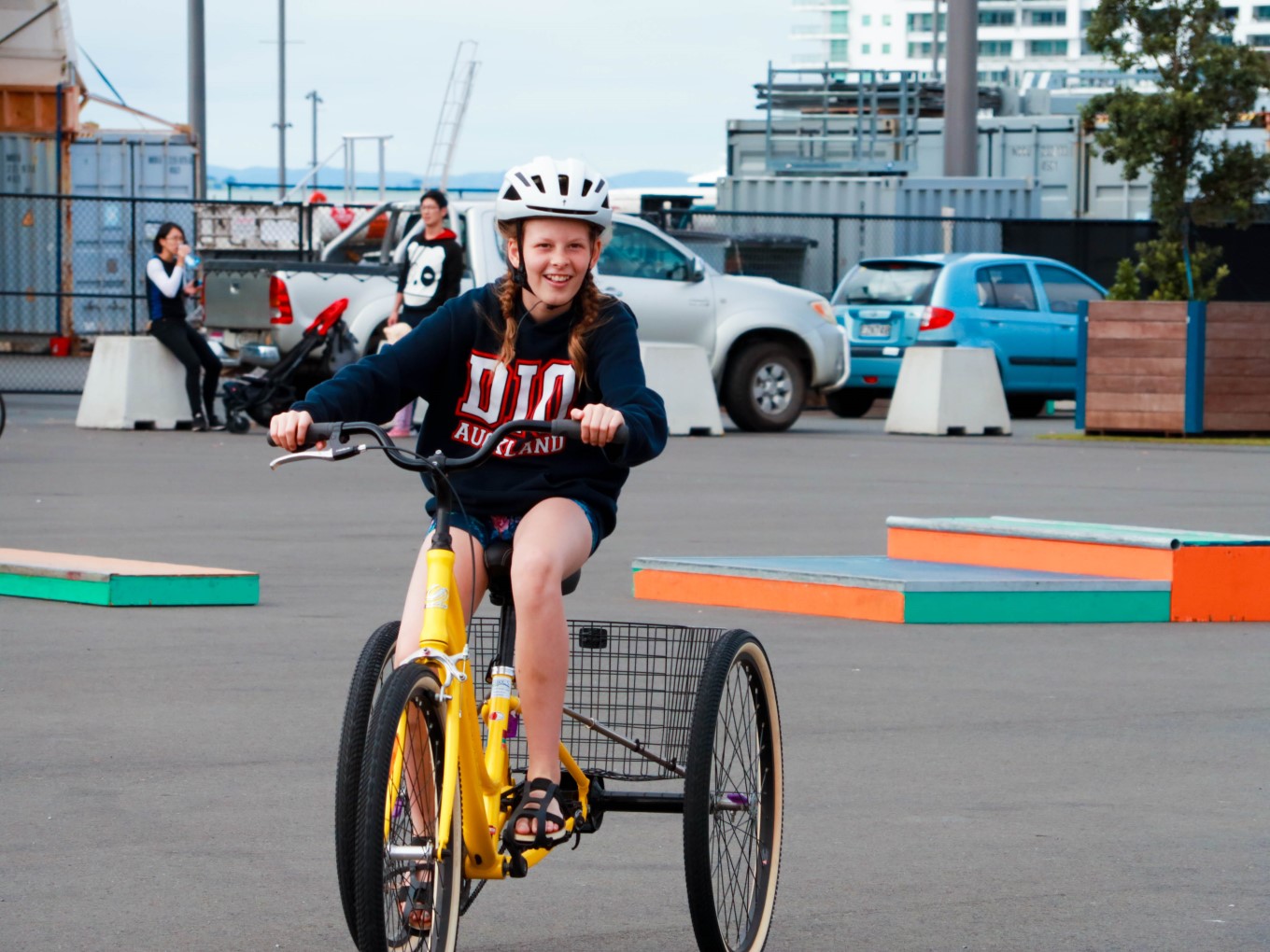Want to get out of your car and onto a bike, but worried your age or mobility will stop you? Two groups – Bike Auckland and Cycling Without Age – are showing how age and mobility issues should not be a barrier to cycling.
Bike Auckland’s TryACycle events attract a wide range of would-be cyclists, from people who use wheelchairs to those who don’t drive because of conditions like epilepsy. Through TryACycle, attendees have been able to check out recumbent cycles, handcycles, power-assist trikes and wheelchair cycles, and find out about funding for these.
Fiáin d’Leafy, Bike Auckland’s Chief Biking Officer, says many people have been surprised and delighted by the range of bikes available.
“The response has been amazing,” says Fiáin. “We’ve had people coming along who had been riding for 30 years who were able to try the new kinds of electric cycles in a low-pressure environment. We had a few kids there, too, and you could see the joy on their faces when they got experience cycling.”
Conversations about accessible transport can centre around things like parking and public transport, ignoring the fact that cycling can be an option for those with different mobility needs. But, says Fiáin, why should these folk miss out on the benefits of cycling?
“It’s excellent for wellbeing and getting involved with groups encourages social inclusivity. For people dependent on others to drive them, cycling can also lead to more independence.”
Grab Your Wheels, a family-run site promoting accessible travel and tourism, helped promote the event series – and continues to be an excellent resource for those wanting to see what’s possible.

With funding from Waka Kotahi’s Hoe ki angitū – Innovation Fund, cycles were loaned to TryACycle thanks to Disability Sport Auckland and the Auckland Whānau Special Needs Support Group. A tandem bike from Revision (Blind Low Vision NZ) also featured, along with a trishaw bike from Cycling Without Age.
Launched in Denmark in 2012, Cycling Without Age is an international organisation that is currently active in 39 countries, including New Zealand. Volunteers help elderly people get out of their nursing homes and onto electric trishaws, where riders sit behind their passengers and take them for short rides around their community.
Auckland Council Low Carbon Specialist Greer Rasmussen says her grandmother’s experiences motivated her to start the Point Chevalier chapter of Cycling Without Age.
“When you have a disability, your world can become really small, really fast,” says Greer. “I saw this happen to my nana, but even just taking her outdoors in her wheelchair made a difference to her. I thought, ‘I can’t take my 90-year-old nana to the doctors on a bike… Or can I?’”
While living overseas, Greer saw a variety of bikes suited to people with varying mobility needs, including cargo bikes and trishaws.
“Everyone should have the chance to experience cycling, the wind in your hair and being out in the fresh air,” she says. “You can see the difference in people during and after a ride – they’re talking more and are more engaged with the world.”

